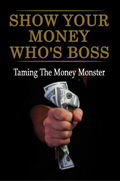Latest Updates
-
Sep 12
2009Know where you Spend your Money!
Impulse spending means that you are making excessive unplanned purchases. An example of impulse spending that we can identify with is a trip to the gas station. You stop by the station, and while pumping gas you see a display of your favorite sodas and candy bars so you decide to get one of each. Zappo, you go inside, buy one of each and drive off into the sunset eating candy and drinking soda. That is an example of innocent impulsive spending. You spent three bucks and got a sugar and caffeine jolt. Now, you don't do this every time you stop for gas do you? Well...yes, some do, but most of us don't. If you buy those items every time you stop for gas it is not impulse spending, it is a habit.
Sometimes impulse spending can be a good thing. You are on your way home from work and you are thinking about what a wonderful wife or husband you have. You feel so blessed and are thanking the Lord for them as you drive. Then it hits you. Stop and buy her some flowers, or him a box of brownies at your local supermarket. You stop, make your purchase, and then surprise them with a blessing when you walk in the door. You were impulsive, but you could afford it and it sure was fun. It was a really good thing to do for your spouse. The key concept here is having the maturity and self-control to know when to say no to your impulses.
Remember my friend who was listening to his car radio and heard that he could get a free cooler by stopping by a certain car dealership. All he had to do was test drive a new car. He and his wife loaded the kids up in their car, hurried over to the car dealership, took their test drive, and you guessed it...he proudly accepted ownership of his "free" cooler for which he paid $25,000. Now, that is impulse spending. In 2008 a TV news story highlighted a car dealer who was offering a deal where customers would get a specific brand new car for the sum of $1.00 when they bought any other new car from him at the full sticker price. That was a great deal for those who needed two new cars at once and could afford to pay for them, their taxes, and insurance. One has to wonder how many people went impulsive on that opportunity.
This is a really tough one because we have all been trained to spend impulsively by our culture. Look at the way various items are arranged on the shelves in any retail store. They are practically jumping off the shelves at you. ALL of the items beside the checkout stands are impulsive spending, high margin items. It is no accident that they are right there beside the cash register. They are placed there by design. In essence, your favorite retailer is trying to squeeze every last penny out of your pocket when you check out.
Watch out for Impulsive Spending! Take charge of your money and make wisespending decisions. The money you save will be your own.
www.christianretirement.com
-
Aug 23
2009WASHINGTON - Millions of Retired Americans face shrinking Social Security checks next year.
The trustees who oversee Social Security are projecting there won't be a cost of living adjustment (COLA) for the next two years. That hasn't happened since automatic increases were adopted in 1975. If COLAs are denied, it will be the first time in a generation that payments would not rise.
Though Social Security benefits cannot be decreased, yet the buying power of theri monthly payments would drop for millions of people in the Medicare prescription drug program because the premiums, which often are deducted from Social Security payments, are scheduled to go up slightly.
Cost of living adjustments are tied to inflation, which has been negative in 2009.
Advocates say that retirees still face higher prices because they spend a disproportionate amount of their income on health care, declining home values, and shrinking retirement portfolios just as they are relying on those assets for income.
Approximately 50 million retired and disabled Americans receive monthly Social Security benefits. The average benefit for retirees is $1,153 per month. All beneficiaries received a 5.8 percent COLA increase in January, the largest since 1982.
More than 32 million people are in the Medicare prescription drug program. Average monthly premiums are set to increase from $28 this year to $30 next year, though they vary by plan.
Condensed from an article by Associated Press Writer Stephen Ohlemacher - Sun Aug 23, 2009.





